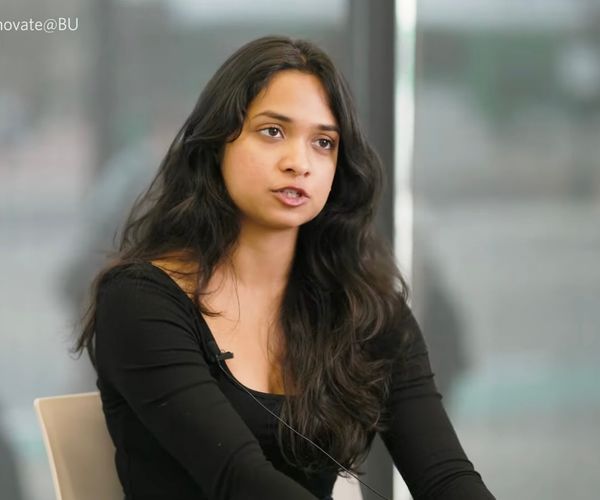When Tanya Shizan (Questrom’26) was in high school, she witnessed firsthand the challenges students face when trying to create sustainable social impact. After successfully raising $600 to build a primary school for children in a tribal village near a tiger reserve, Tanya recognized that many student-led projects struggle due to limited resources, funding barriers, and lack of strategic support.
“Over 250,000 students in India today face these exact same challenges,” Tanya explains. “They don’t have funding or strategic resources or mentorship.”
This realization led to the creation of Udayaa, India’s first student-led crowdfunding platform designed specifically for young social entrepreneurs. As a finalist in the New Venture Competition, Udayaa is poised to transform how students engage with service learning and social impact initiatives.
Traditional crowdfunding platforms often present significant obstacles for high school students. “There was so much red tape,” Tanya recalls of her own experiences. “There were so many things that I didn’t have, like bank paperwork or NGO paperwork.”
Udayaa eliminates these barriers by providing a comprehensive platform tailored to students’ needs. Beyond simply facilitating fundraising, the platform offers project planning resources, connects students with experienced mentors, and provides frameworks for measuring and reporting impact.
“We help students understand the benefits of measuring and quantifying the impact they’re creating in their primary communities,” Tanya says. This approach enables young changemakers to create more sustainable and scalable projects while effectively communicating their impact to donors.
Udayaa’s growth has been supported through Boston University’s innovation ecosystem. The venture is currently in the Fly stage of the Innovation Pathway program and participated in the 2024 Summer Accelerator.
“The Summer Accelerator was one of the first opportunities for Udayaa to be part of a cohort where other students were also working intensively on their projects,” Tanya shares. “It really inspired us to keep going and pushed us to think deeply about our idea.”
Through these programs, Udayaa has connected with valuable mentors including Nana Young, who has extensive experience with global nonprofits, and Andre, a professor at Questrom School of Business who has advised on platform strategy.
The stipend provided by the Summer Accelerator allowed the team to work on Udayaa full-time, developing their skills and creating materials they continue to use today. “It gave us kind of permission and the resources to work further on a project that was so dear to us,” Tanya explains.
In the short term, Udayaa is focused on assembling marketing and sales teams while refining their platform. They aim to expand their reach beyond high schools to metropolitan cities throughout India.
Their long-term vision extends globally. “There’s also a really great opportunity for Udayaa to not only expand geographically within India, but as someone who has grown up in so many different developing countries, Manila is a place that’s close to my heart,” Tanya shares.
The team envisions Udayaa becoming integrated into international school curriculums, allowing students worldwide to explore social entrepreneurship, find collaboration opportunities, and create meaningful impact. Their goal is to build a platform that connects donors across the globe with student innovators in India, the Philippines, and eventually throughout the global South.
“Every student will have the opportunity to explore Udayaa and be inspired by the work that other people are doing,” Tanya says.
“In the long term, we definitely hope that Udayaa will be something that people think of immediately when they think of student service learning or social impact.”




